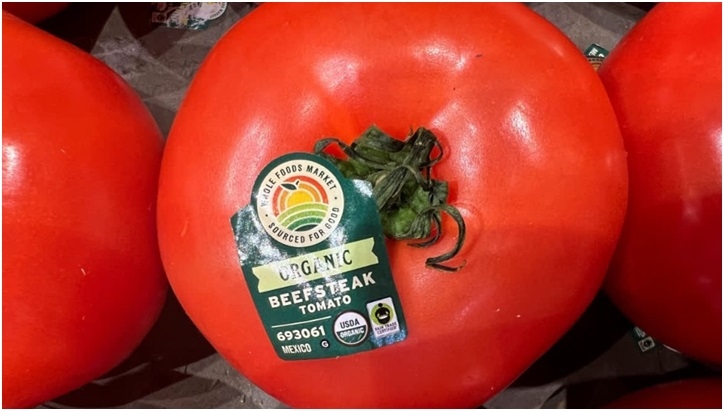US Imposes A 17 Pc Duty On Fresh Mexican Tomatoes In Hopes Of Boosting Domestic Production
16 Jul 2025 14:59:24

Washington : The U.S. government said Monday it is immediately placing a
17% duty on most fresh Mexican tomatoes after negotiations ended without an
agreement to avert the tariff. Proponents said the import tax will help rebuild
the shrinking U.S. tomato industry and ensure that produce eaten in the U.S. is
also grown there. Mexico currently supplies around 70% of the U.S. tomato
market, up from 30% two decades ago, according to the Florida Tomato Exchange.
Robert Guenther, the trade group's executive vice president, said the
duty was “an enormous victory for American tomato farmers and American
agriculture." But opponents said the import tax will make tomatoes more
expensive for U.S. consumers.
Mexico's Economic Secretary Marcelo Ebrard said the government would
continue looking for a way to once again suspend the tariff, part of ongoing
negotiations between the two trading partners. In a statement Monday, he wrote
that the move would "only affect the pockets of American consumers.
“It's unfair and against not only Mexican producers, but on the American
industry. The ground that Mexican fresh tomatoes has gained in the U.S. is
because of the quality of the product, not from unfair practices," he
wrote.
Mexican greenhouses specialize in vine-ripened tomatoes, while Florida
tomatoes are typically grown in fields and picked green.
Tim Richards, a professor at the Morrison School of Agribusiness at
Arizona State University, said U.S. retail prices for tomatoes will likely rise
around 8.5% with a 17% duty.
Jacob Jensen, a trade policy analyst at the American Action Forum, a
right-leaning policy institute, said areas with a higher reliance on Mexican
tomatoes could see price increases close to 10%, since it will be more
difficult to replace that supply, while other parts of the U.S. could see price
increases closer to 6%.
“As an industry, we are saddened that American consumers will have to pay
a tomato tax, or duty, for a reduced selection of the tomatoes they prefer,
such as tomatoes on the vine, grape tomatoes, Romas, cocktail tomatoes and
other specialty varieties,” said Lance Jungmeyer, president of the Fresh
Produce Association of the Americas, which represents importers of Mexican
tomatoes.
The duty stems from a longstanding U.S. complaint about Mexico's tomato exports
and is separate from the 30% base tariff on products made in Mexico and the
European Union that President Donald Trump announced Saturday.
The Commerce Department said in late April that it was withdrawing from a
deal it first reached with Mexico in 2019 to settle allegations the country was
exporting tomatoes to the U.S. at artificially low prices, a practice known as
dumping.
As part of the deal, Mexico had to sell its tomatoes at a minimum price
and abide by other rules. Since then, the agreement has been subject to
periodic reviews, but the two sides always reached an agreement that avoided
duties.